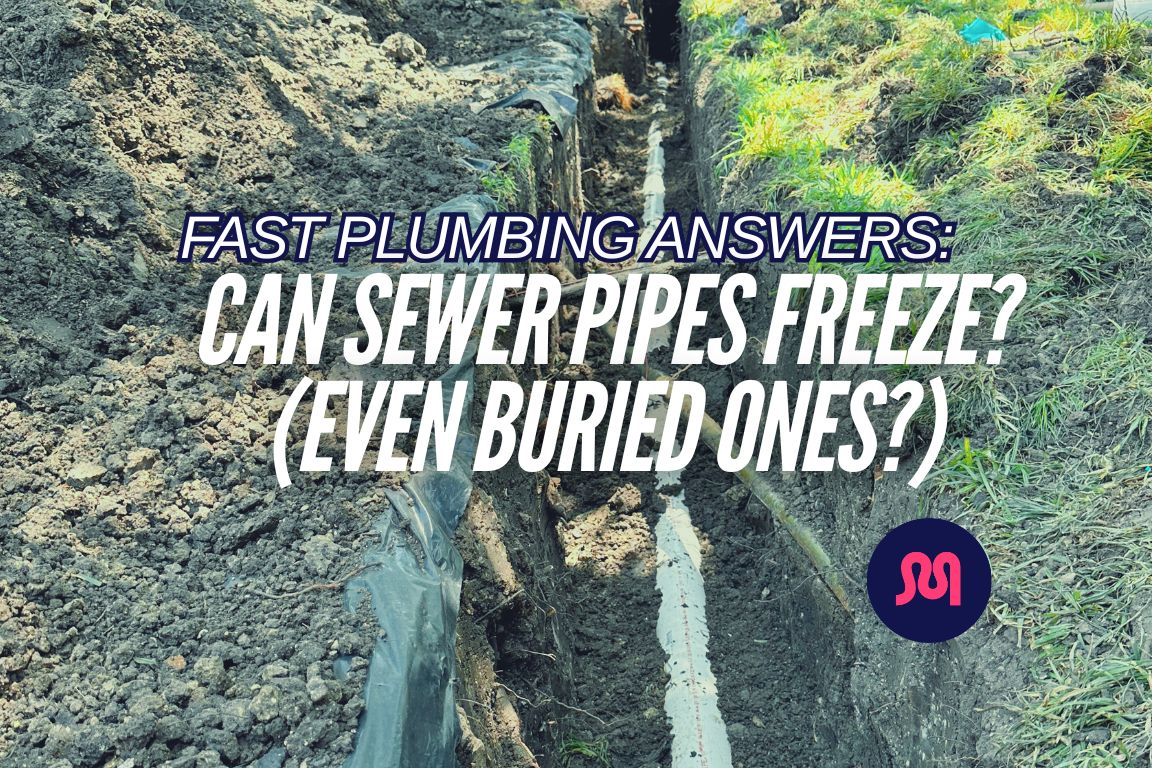Fast Plumbing Answers: Wet Spots in Yard That Won’t Dry
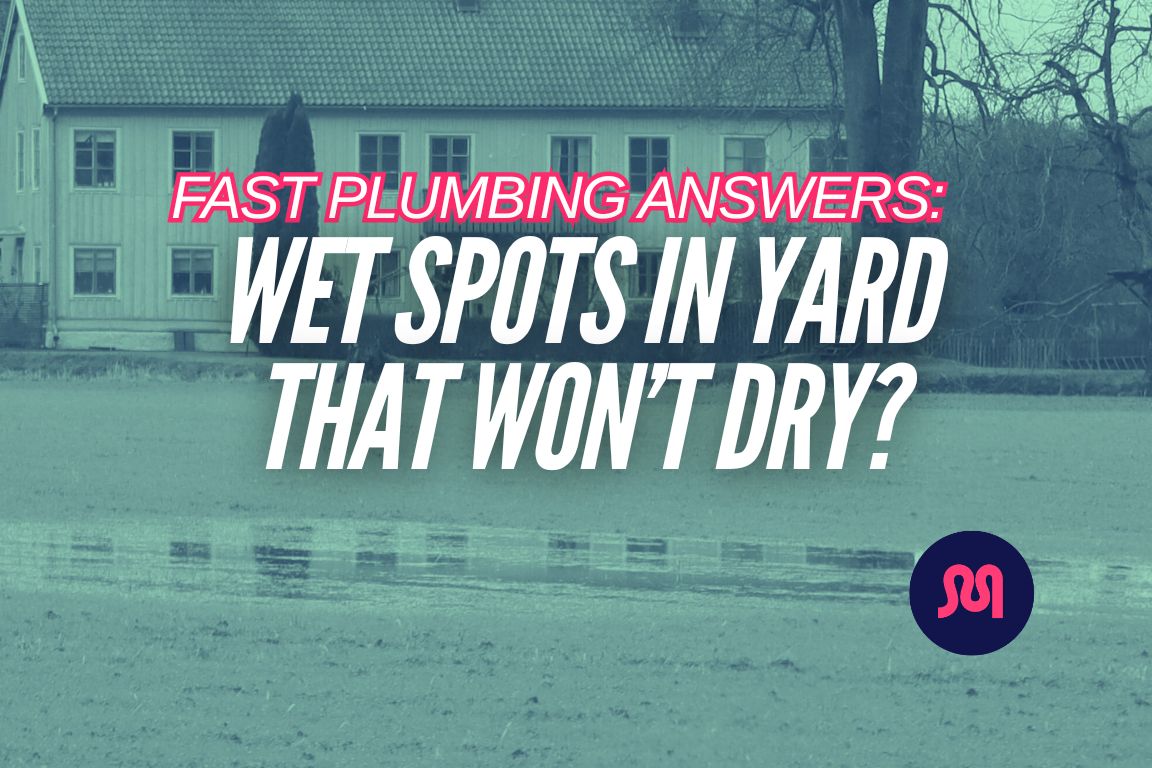
table of contents
table of contents
There’s a puddle of water in your backyard that just won’t dry, even on extremely hot days. You’re likely dealing with a yard leak — but is it your water line, irrigation system or sewer line?
Don’t worry: we’ll answer all your questions in 2 minutes or less.
We’re Mother, a Dallas-Fort Worth plumbing company that provides dependable, hassle-free modern plumbing for homeowners who value quality. Call us for fast, accurate yard leak detection services to discover the source of your soggy yard.
{{leak-detection="/services/leak-detection"}}
The 2 Prime Suspects Causing Wet Spots in Your Yard
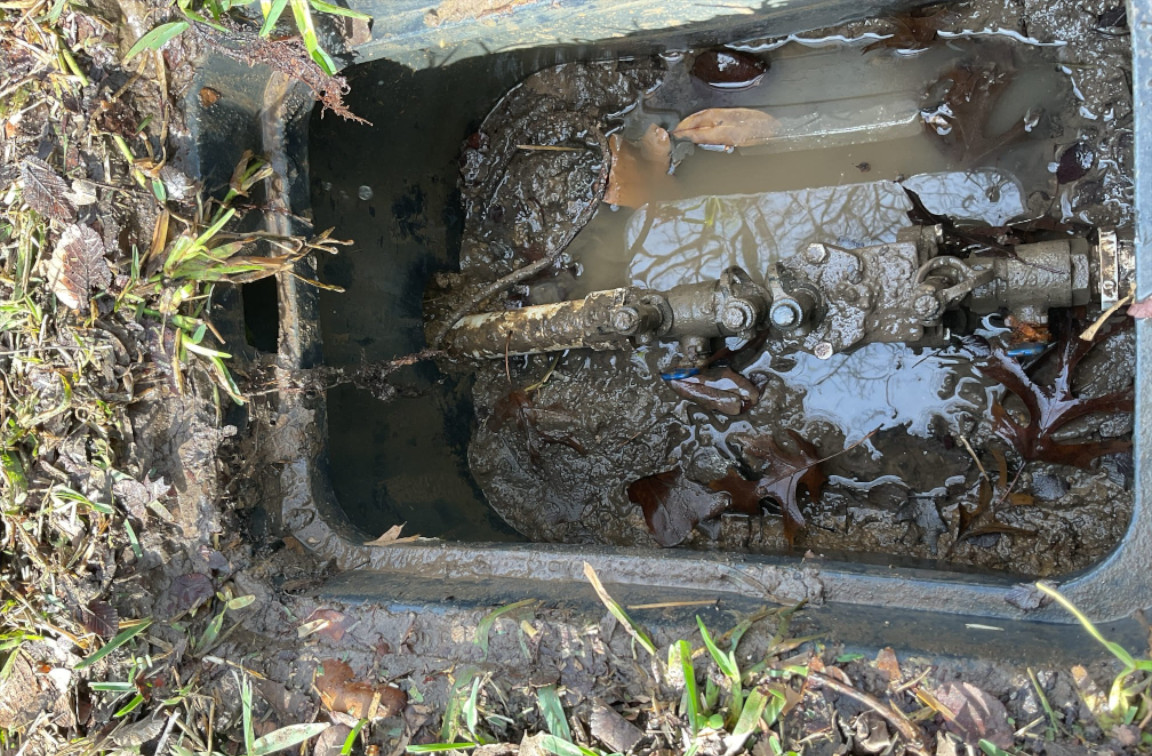
We asked Dillon Ashton, our Master Plumber, for expert insights into what causes wet spots in your yard that won’t dry. Dillon named the 2 most likely causes:
- A leak in your main water line. “Water lines are under constant pressure… a leak’s going to spray continuously until it’s fixed,” Dillon explains.
- A leak in your irrigation system. If there’s a focused, smaller pool of water in your yard, you’re likely dealing with a leak in your backyard’s irrigation lines.
Dillon told us the most common cause of yard leaks is a break in your water line. These leaks spew inbound water from the city at fast rates, creating soggy patches that don’t dry up.
A dip in your home’s water pressure or a sudden, unexplained spike in your water bill are clear indicators of a water line leak.
A sewer leak is less common (but much smellier)
It’s less likely that soggy patch in your yard is due to a sewer leak, but there’s one telltale sign your sewer line is the problem: your backyard stinks.
A sewer pipe leak adds wastewater and sewage to your soil. They release toxic sewer gases that make your lawn smell like eggs — or worse.
If your home’s water pressure is normal but that lush, soggy patch in your lawn won’t dry, you may also be dealing with an underground sewer leak.
Your 3-Step Action Plan to Fix the Problem
You;re sick of having a soggy lawn, weak showers or increased water bills. Our plumbers created a 3-step plan to fix your underground leak fast:
- Hydrostatic testing: Determine the exact location of the leak, and whether it’s on your property or the city’s side.
- Further yard leak detection: If hydrostatic testing reveals no break in your water line, other testing is required to locate the source.
- Recommendations: Based on the precise location and source of your underground yard leak, our plumbers make an expert recommendation for a long-term solution. Most leaks are solved with spot repairs using Schedule 40 PVC.
Step 1: Is the water leak on your property, or the city’s side?
You’re relatively certain the leak is in your water line. But before you pay out of pocket for repairs, let’s determine whether the problem is even on your property.
“The first thing we need to do is perform a hydrostatic test to determine if the leak is on your property or the city’s side,” Dillon explains.
The city may foot the bill for your plumbing repairs in several instances:
- Your water line is damaged by city negligence;
- The city failed to maintain the public water line; or
- The city improperly installed your water connection.
If it’s a water line leak: Hydrostatic testing is the best way to establish the leak’s location. Your system is closed on both ends, filled with water and pressurized. Pressure loss within the water line indicates a leak, and our advanced equipment identifies its location with pinpoint accuracy.
Step 2: If advanced yard leak detection is needed
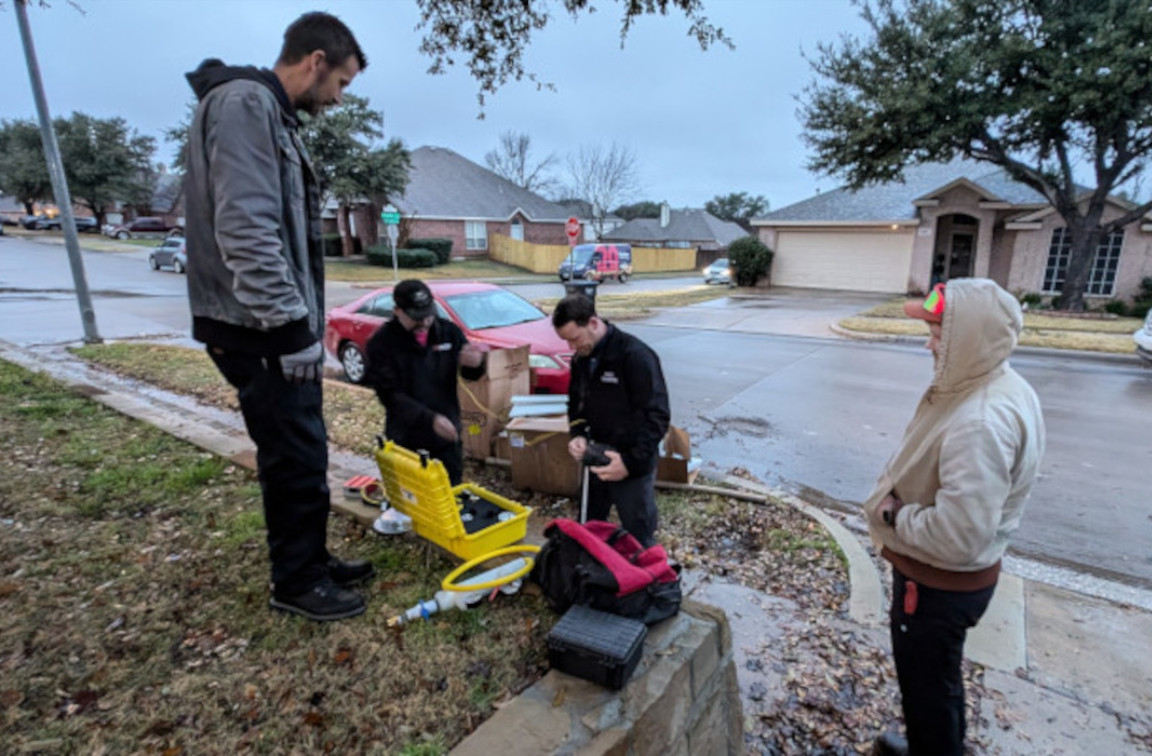
If your hydrostatic test reveals no damage in your water line, it’s time to move on to other potential suspects.
Ask your plumber for a list of yard leak detection services and their precise applications. At Mother Modern Plumbing, we offer a suite of trenchless, no-dig leak location options:
- Acoustic leak detection: Highly-sensitive microphones pick up sound waves from leaking water underground. These sound waves are amplified to analyze patterns and direction. The sound is triangulated to determine the exact location of your yard leak.
- Electronic leak detection: An electronic leak detector senses changes in conductivity due to the presence of water. This allows it to find wet areas underground surrounded by dry soil — a telltale sign of leakage.
- Infrared thermography: Water leaking from a pressurized pipe often raises or lowers the temperature of the surrounding soil. An infrared camera is used to detect these temperature changes, and display them as thermal images.
- Camera inspection: Expect a main line or sewer camera inspection with every professional leak detection. We keep photo and video records of all sewer camera inspections on file for customer review — they’re often needed for insurance and reimbursement claims.
If it’s a sewer line leak and the city’s at fault:
As with water leaks, it’s important to establish the precise location of a sewer line leak. If it’s on the city side, due to city damage, improper maintenance or damage, you may have a claim.
It’s crucial to get photo and video evidence that establishes the issue on the city’s side — in DFW, we provide sewer camera inspections to assist homeowners with these claims.
Compare yard leak detection options and discover the right solution for your home in our expert guide.
{{yard-leak-detection-fort-worth="/blogs/yard-leak-detection-fort-worth"}}
Step 3: Get expert repair solutions from a trusted plumber
The good news: Most yard leaks affect less than 10 feet of your pipe, making them excellent candidates for spot repair solutions.
“Spot leak repairs are the best case scenario,” advises Dillon. These localized repairs cost thousands less than partial sewer line replacement and take less time to complete:
*Note: Costs are estimates and can vary widely based on pipe depth, location (e.g., under concrete), soil conditions, and specific DFW market factors.
Insist on Schedule 40 PVC for spot repairs or any section of pipe replacement. Schedule 40 PVC is renowned for its durability, anti-corrosive properties and chemical resistance. It also performs well in shifting soil and waterlogged terrain.
DFW Homeowners: Local Trouble with Quest Pipes
Quest pipes (also known as polybutylene pipes) were commonly used in home plumbing systems between the late 1970s and mid-1990s. These problematic pipes provide a host of problems for homeowners and are the cause of frequent leaks and collapses:
- Material degradation
- Oxidization
- Poor reaction to chlorine and chloramines
- Sudden leaks and bursts
“If you have Quest pipes, your entire water line must be replaced,” Dillon urges. “That company has been out of business for years due to class action lawsuits.”
Have Quest pipes in your DFW home? Call Mother 7 days a week for immediate replacement options.
Call Mother for Expert Yard Leak Detection in Dallas, TX
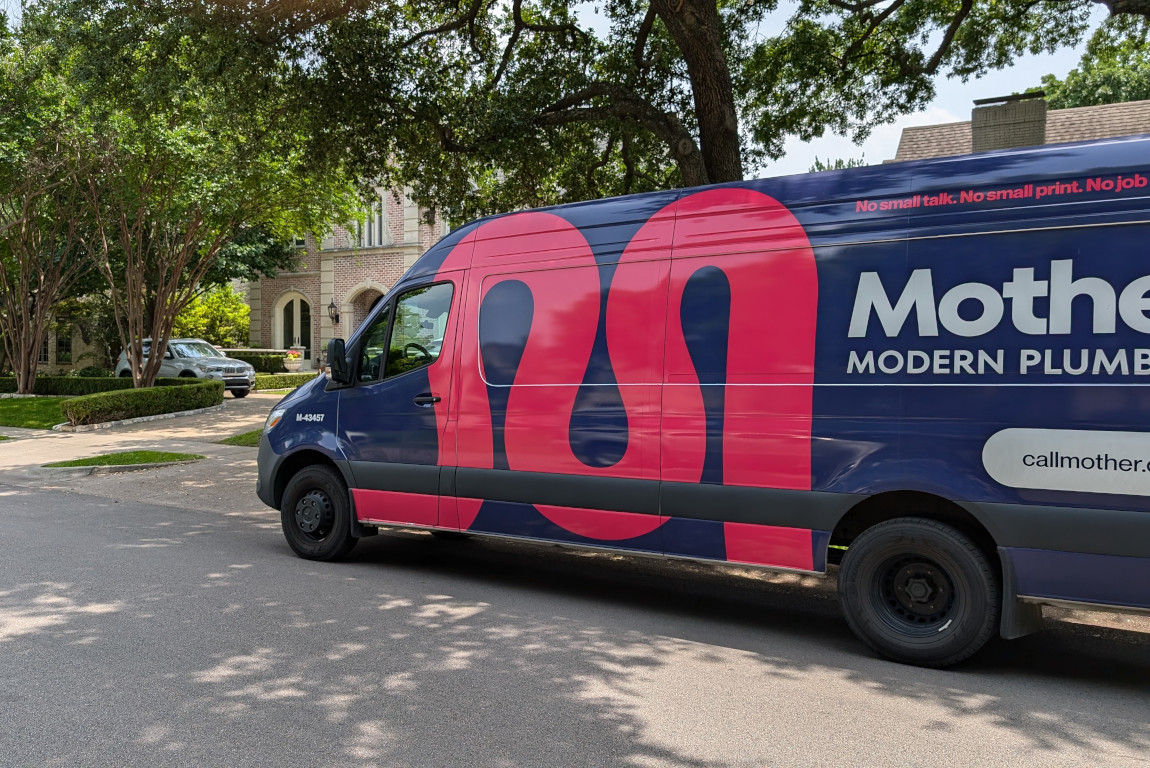
Live in Dallas? Let’s dry up those wet spots in your yard for good.
Here’s what to expect when you call Mother about yard leaks on your Dallas-Fort Worth property:
- Schedule a hydrostatic test. The first line of defense to identify and address a yard leak is a hydrostatic test of your main water line.
- Consider other yard leak location services. If your hydrostatic test shows no sign of water line damage, ask your plumber to inspect your lawn irrigation system and your sewer line.
- Fix the leak for good. Spot repairs are sufficient to fix most yard leaks. Ask your plumber to use Schedule 40 PVC for durable, long-lasting results — it lasts 75-100 years with regular maintenance and cleaning. If you have Quest pipes, get them out of your home immediately.
We train our plumbers to identify the exact cause of your yard leak, compare your repair options, and establish the single best solution to the problem. Trust Mother to provide timely service, thoughtful advice, and lasting solutions that restore peace of mind.
{{leak-detection="/services/leak-detection"}}
Common Q’s about Water Leaks
How much does underground leak detection cost in Texas?
The average cost of professional water leak detection services in Texas is $500-$1,000. This cost depends on the quality of detection equipment used, the extent of your leak, and the experience level of your plumber.
Water leak detection prices in Dallas County and Tarrant County are slightly higher than the state average due to higher labor costs.
Are you licensed and insured?
Every member of our team is licensed with the state board of plumbing examiners and Mother is insured to protect your property while we're on site.
Do you offer warranties on your repairs?
Yes! Check out our warranties page for more details.


